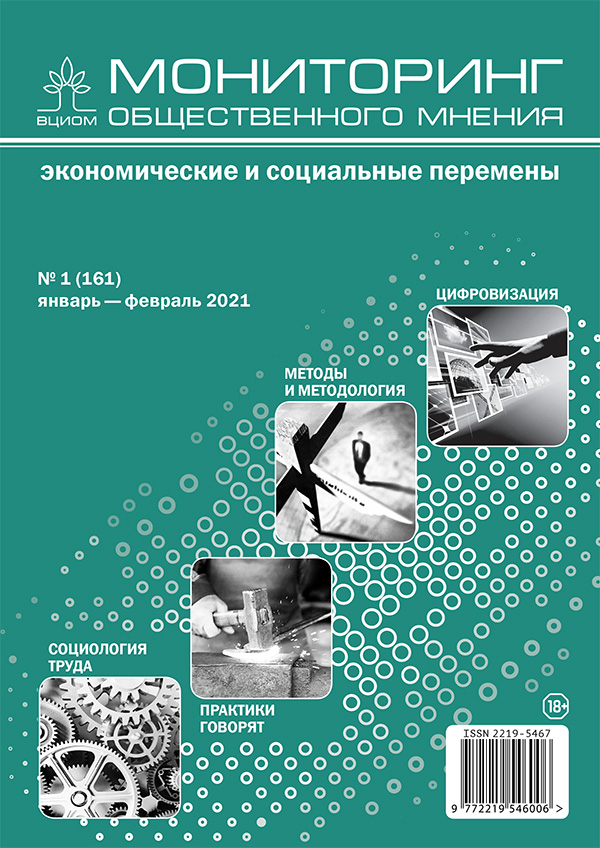Методы машинного обучения в социологическом исследовании: предсказание частичного неответа с использованием наивного байесовского классификатора
DOI:
https://doi.org/10.14515/monitoring.2021.1.1756Ключевые слова:
частичный неответ, отказ от ответа, отсутствие ответа, «затрудняюсь ответить», наивный байесовский классификатор, текст-майнинг, европейское социальное исследование, машинное обучение, качество измеренияАннотация
Пропущенные данные в социологических исследованиях могут быть связаны с различными причинами, и в данной статье рассматриваются те из них, что появляются в результате незнания, нежелания или затруднения с поиском ответа на отдельные вопросы анкеты у респондента, — частичные неответы (item nonresponse). Остро стоит вопрос о предсказании частичных неответов, решение которого позволило бы сократить вероятность появления пропусков в собираемых данных.
В статье показано, как возникновение частичного неответа можно прогнозировать с помощью современных методов текст-майнинга и машинного обучения на примере данных Европейского социального исследования (European Social Survey) по Великобритании. Для решения поставленной задачи использовался метод наивного байесовского классификатора (Naive Bayes Classifier) — популярный метод предсказания класса зависимой переменной на основе текстовых данных. С опорой на научную литературу показываем, как работает этот метод. Мы подготовили базу данных, объединяющую полные формулировки вопросов, ответов, инструкций и результатов опросов исследования European Social Survey по Великобритании. Нами показано, как отдельные модели для предсказания появления частичных неответов были обучены с помощью метода наивного байесовского классификатора на основе частот слов и метрики важности слов TF-IDF, процессу расчета которых мы также приводим подробное описание. Каждая из моделей предсказания частичного неответа оценивалась нами с точки зрения частоты возникновения ошибок при получении прогнозов с их помощью. Мы получили списки слов, наличие в вопросах которых статистически чаще сопровождается или не сопровождается частичными неответами. Наши результаты показали, что респонденты менее охотно отвечают на сенситивные вопросы, а некоторые слова, имеющие отношение к процедуре получения ответа на вопрос, статистически чаще пропускаются респондентами.
Загрузки
Опубликован
Как цитировать
Выпуск
Раздел
Лицензия
Copyright (c) 2021 Мониторинг общественного мнения: экономические и социальные перемены

Это произведение доступно по лицензии Creative Commons «Attribution-NonCommercial-ShareAlike» («Атрибуция — Некоммерческое использование — На тех же условиях») 4.0 Всемирная.






